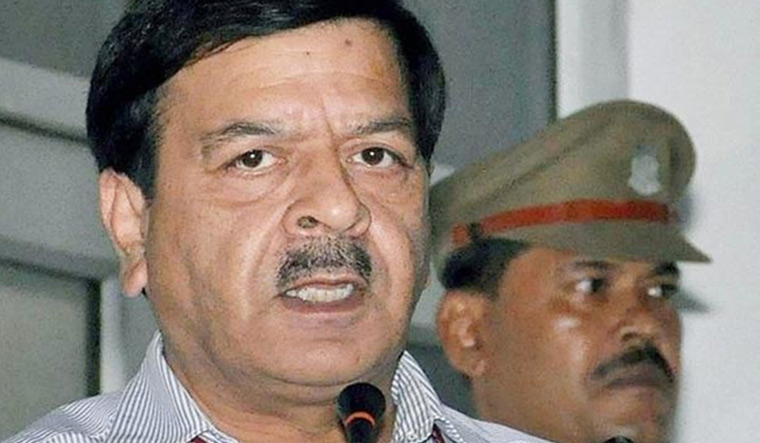Sharad Kumar, a 1979 batch Haryana cadre IPS officer who remained at the helm of the National Investigation Agency for more than four years, has once again come under the spotlight. Kumar was appointed director general of the NIA during the UPA regime in 2013, but following his retirement in October 2015, the NDA government re-employed him on a contract basis with yearly extensions twice—a rarity in bureaucratic circles. Speculation is rife that the NDA government may give him a post-retirement job as member of the National Human Rights Commission, prompting a group of NGOs to submit a memorandum to President Ram Nath Kovind, opposing such a move.
Kumar’s tenure in NIA first courted controversy after the opposition Congress alleged that it was during his tenure that the NIA probe into all terror-related cases involving Hindu extremists got derailed. The Congress alleged that he was given an extension twice as NIA chief only to ensure that the alleged Hindu extremists accused in these cases are acquitted.
Now, the All India Network of NGOs and Individuals (AiNNI) working with National and State Human Rights Institutions has submitted a memorandum to the president, expressing serious concerns over the possible appointment of the former NIA director general as a NHRC member.
AiNNI, in its memorandum, has mentioned that the appointment of Kumar, at a time when most of the cases handled by the NHRC are against police and security agencies, would send a wrong message to the people.
The memorandum mentions that Kumar’s tenure as NIA chief had come under severe scrutiny as “it was during his term all terror cases by right wing Hindutva outfits associated with the Rashtriya Swayamsevak Sangh (RSS) were closed and almost all were resulting in acquittals of the accused.”
The NGOs said his likely appointment would also come at a time when the NHRC team is assisting the Central Bureau of Investigation (CBI) in the extrajudicial killings in Manipur and also a series of cases are pending regarding serious human violations by security forces in West Bengal, Chhattisgarh, and Jammu and Kashmir.
AiNNI has requested the president to urgently intervene in this matter through his powers of assent and, accordingly, direct the appointment committee to ensure that due process of appointment to NHRC is followed.
In 2011, the previous UPA regime asked the National Investigation Agency to inquire into the alleged involvement of right-wing extremists in six terror cases and one murder case of former RSS pracharak Sunil Joshi. The terror cases were related to blasts in Samjhauta Express in Haryana (2007), Malegaon in Maharashtra (2006 and 2008), Ajmer Dargah in Rajasthan (2007), Modasa in Gujarat (2008) and Mecca Masjid in Hyderabad (2008). The investigators suspected the involvement of right-wing extremists in all these cases which is why the home ministry decided to bunch the cases and hand over the investigations to the NIA.
This year, the Mecca Masjid blast case is the second among the Hindu terror cases where trial has concluded and the judgment has been pronounced, acquitting the accused. The trial in the Ajmer Dargah blast case resulted in conviction of only three—Joshi, Devendra Gupta and Bhavesh Patel—out of the nine accused. Those acquitted included Swami Aseemanand.
In the Sunil Joshi murder case, the NIA handed over prosecution of the case to the Madhya Pradesh police saying it has not found any evidence to suggest that his murder was linked to the larger Hindu terror conspiracy. It said Joshi was killed by his own men. The court didn’t frame charges in the case and discharged all the eight accused, including Pragya Singh Thakur, last year. Incidentally, all charges were also dropped by the NIA against key accused Pragya Thakur in the 2008 Malegaon blast case. The investigation into the Modasa blast case also resulted in a naught after the case was closed for lack of evidence.


